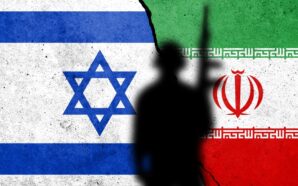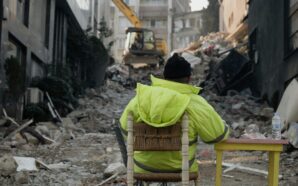Loud exclamations of “Banzai!” were heard over a convention hall somewhere in downtown Tokyo in the wee hours of Sunday as Japanese athletes and roughly 1,200 dignitaries cheered over the good news – Japan had won the bid to host the 2020 Olympics.
The International Olympic Committee (IOC) decided to choose a more familiar and trusted host for the 2020 games after going over risky first time picks like Rio de Janeiro, Brazil and Sochi, Russia in the past.
Why Tokyo?
Tokyo had hosted a previous Olympic event way back in 1964. In the bidding, Japanese Prime Minister Shinzo Abe played with that fact and presented the country as the safest and most secure choice among countries contending for the spot.
The country’s closest competitors were Madrid and Istanbul. However, with Madrid riddled over uncertainties brought about by Spain’s current financial crisis and Istanbul being in the middle of a political conflict plus the strife going on in its neighboring country Syria, Japan offered the least risk among the three.
Prime Minister Abe had also taken the time to assure the IOC about the Fukushima leak telling the panel it is not a threat to Tokyo and never will be; he even went further by taking full personal responsibility of the games’ safety come 2020.
“Let me assure you the situation is under control,” he said. “It has never done and will never do any damage to Tokyo.”
“It poses no problem whatsoever,” Abe added in Japanese when pressed by Norwegian IOC member Gerhard Heiberg over the said radiation risk problem. “The contamination was limited to a small area and had been completely blocked. There are no health-related problems until now, nor will there be in the future. I make the statement to you in the most emphatic and unequivocal way.”
The Crucial Factor
However, the most vital factor in the choosing of the host country was the certainty that it could deliver on the time of the event.
IOC vice president Craig Reedie of Britain had made that clear in his statement: “The certainty was a crucial factor — the certainty that they could deliver.”
Choosing Tokyo was a leap away from the committee’s current trend of taking chances on first-time host cities – from Sochi, Russia for the 2014 Winter Games to Rio de Janeiro, Brazil for the 2016 Olympics as well as picking Pyeongchang, South Korea for the Winter Games in 2018.
Sochi preparations are dominated by cost overruns, a record-breaking budget and the fear over the current anti-gay laws in Russia that had risen raised the hackles of the international community. On the other hand, there is a growing concern over construction delays for the Rio Olympics preparations.
Madrid and Istanbul Present Their Case
Nevertheless, Madrid and Istanbul did not go without a fight throughout the bidding process.
Madrid presented itself as the least expensive option since most of the venues are in existence. The team from the city, headed by Spain’s Crown Prince Felipe, even implored that the event will not pose a financial risk despite the country’s ongoing crisis and rising unemployment rate.
Istanbul, on the other hand, spoke of how choosing it as the 2020 host would mark history – if made the 2020 Olympics’ host; it will for the first time a dominant Muslim nation will do so.
Top Looks of New York Fashion Week
“I Can Do It” – Charlie Hunnam on Being Christian Grey
-
Credit: Shutterstock World on Edge as Russia Warns Trump and Iran Vows Never to Surrender As tensions in the...
-
Credit: Shutterstock Tensions Soar as Iran Launches 100 Drones at Israel Tensions in the Middle East reached a boiling...
-
Credit: Shutterstock Viral video reignites debate over Macron’s unconventional marriage during high-stakes diplomatic tour French President Emmanuel Macron and...
-
Tensions escalate between India and Pakistan as military strikes and air combat raise fears of a wider conflict in...
-
Credit: Pixabay A Powerful Portrait of Resilience Captures Global Attention and Reveals the Human Cost of War Through the...
-
A powerful earthquake strikes Southeast Asia, leaving thousands feared dead, buildings in ruins, and fears of catastrophic flooding on...
-
Japan Unveils the E10 Shinkansen – A High-Speed Revolution With British Design Japan has introduced the groundbreaking E10 Shinkansen,...
-
Avride Teams Up with Rakuten to Introduce Sidewalk Delivery Bots in Tokyo, Bringing Faster and More Efficient Deliveries to...
-
The World’s Most Expensive Substance Costs More Than the Global Economy Imagine a material so rare and difficult to...
-
May Mobility Launches Fully Driverless Ride-Hail Service in Peachtree Corners May Mobility is taking autonomous transportation to the next...
-
What Caused the Plane Crash? The tragic crash of Azerbaijan Airlines Flight 190 in western Kazakhstan has left 38...
-
In a whirlwind 24 hours that rocked South Korea, President Yoon Suk Yeol’s surprise martial law declaration and its...



















